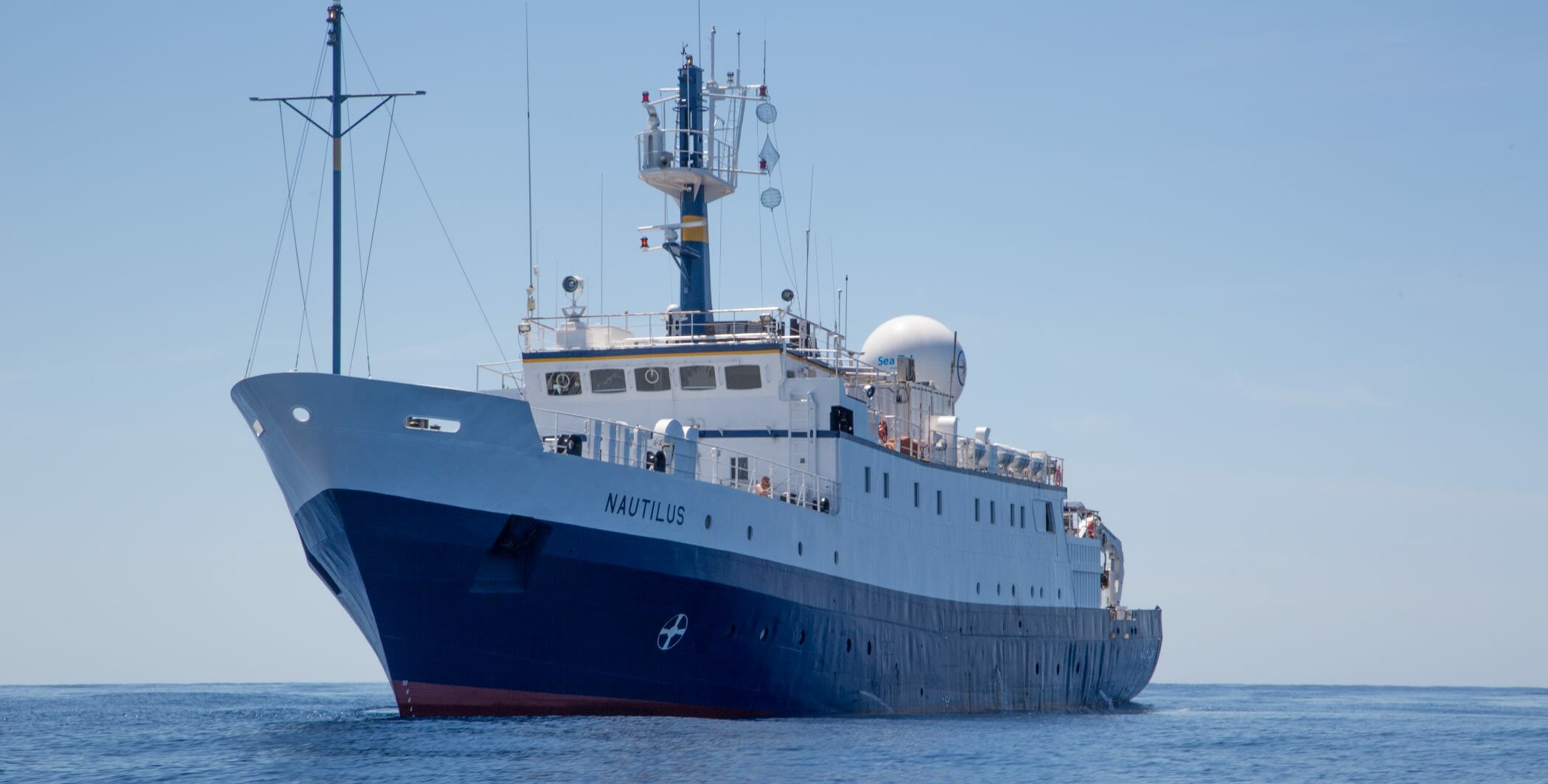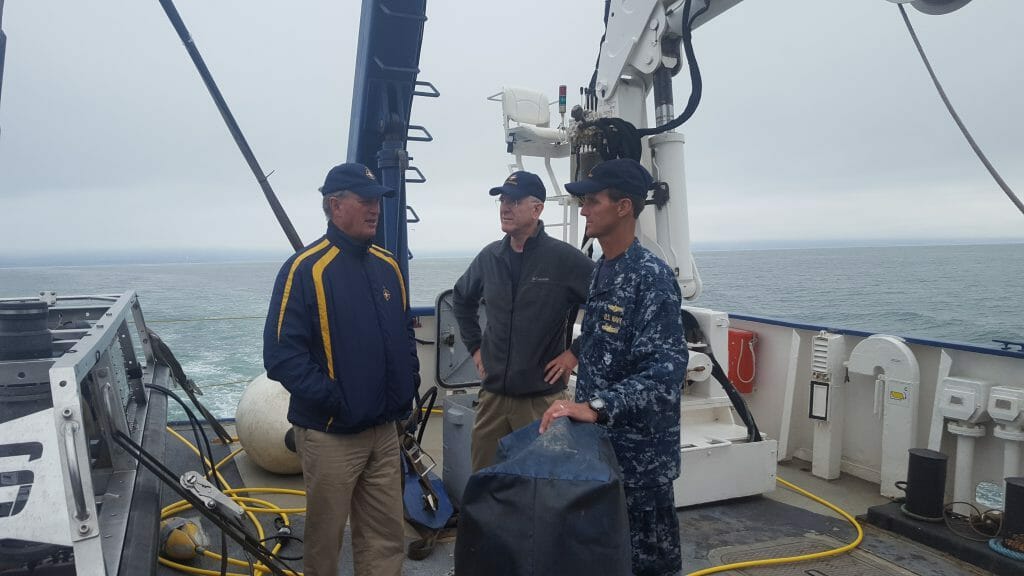
Articles
Reaching Class and Community from the Research Vessel E/V Nautilus
By Henry Kronk
June 08, 2018
On Wednesday, the E/V Nautilus hoisted anchor in Los Angeles and set a course north toward San Francisco. The 64-meter research vessel is operated by the Ocean Exploration Trust (OET) and equipped primarily to explore the sea floor. So—why is this a story on eLearning Inside? Because, as part of the Nautilus Ambassador Program, teachers are aboard, and they’re interacting with students via live video streaming.
The program has occurred since 2014. This year, teachers joining the Nautilus team include: Terri Miller, who teaches fourth grade at Barbe Elementary School in Lake Charles, LA; Simon Rios, Jr., of the CITGO Innovation Academy at Moody High School in Corpus Cristi, TX; Jeff Brown, who teaches numerous STEM courses at Lockport Township High School in Lemont, IL; and Amelia Cote, a seventh grade science teacher at Olle Middle School in Houston, TX.
The Nautilus and the OET

The OET, a non-profit, was founded by Dr. Robert Ballard, the ocean explorer who discovered the Titanic in 1985 along with numerous other wrecks. While the organization is committed to ocean exploration, it also seeks to educate and inspire young learners with the mysteries of the deep. The teachers on board will have the opportunity to get in touch with their classes via a live video stream, allowing for unique teaching opportunities.
In addition, the Nautilus Live video portal is also accessible to the general public, and folks can take a look at what’s going on in real time.
“The Nautilus Ambassador Program aims to spark students’ interest in ocean science, and hopefully lead many to consider careers in STEM,” said Allison Fundis, Vice President of Marine Operations and Programs at OET, in a statement. “We are thrilled to welcome these four outstanding educators aboard the ship to continue this mission. They will undoubtedly share their experience in ocean exploration in their communities and incorporate what they learned into their curriculum.”
“Embedding educators into the ocean exploration team truly showcases real-world connections for classroom curricula and highlights the many ways cutting-edge technology can be integrated into student learning,” said Community STEM Program Coordinator at OET Megan Cook in a statement.
The Current Mission
The current voyage focuses on mapping the ocean off of southern California. The main area of focus will be the Channel Islands, where the team will conduct some “bathymetric data collection, seafloor characterization, and … seep detection.” They’ll also look into the site of a recent earthquake near Santa Cruz Island, the largest of the Channels.
To do this, the Nautilus uses some of the most advanced exploration technology in the world. Their multi-beam sonar system maps the ocean floor, while their remotely operated vehicle (ROV)—dubbed Hercules—can head to the bottom and explore points of interest up close.
This teaching initiative is put together with the help of CITGO, the oil and gas producer. The energy corporation has taken an interest in some of the world’s bodies of water since 2014, when they began their partnership with the OET. In February of this year, the U.S. Fifth Circuit of Appeals ordered the company to allocate $81 million to the state of Louisiana for allowing its Lake Charles refinery to release over 53,000 barrels of oil into the local waterways. One of the teachers aboard also happens to be from Lake Charles.
“This year’s four ambassadors share a passion for introducing young people to the joys and wonders of science,” said CITGO General Manager, Community Relations & Corporate Social Responsibility Larry Elizondo in a statement. “CITGO has seen the power of initiatives like the Nautilus Ambassador Program to inspire students to pursue futures in STEM. We are thrilled to be again working with OET on this innovative program and look forward to seeing how the teachers bring ocean exploration to life in their classrooms.”









No Comments